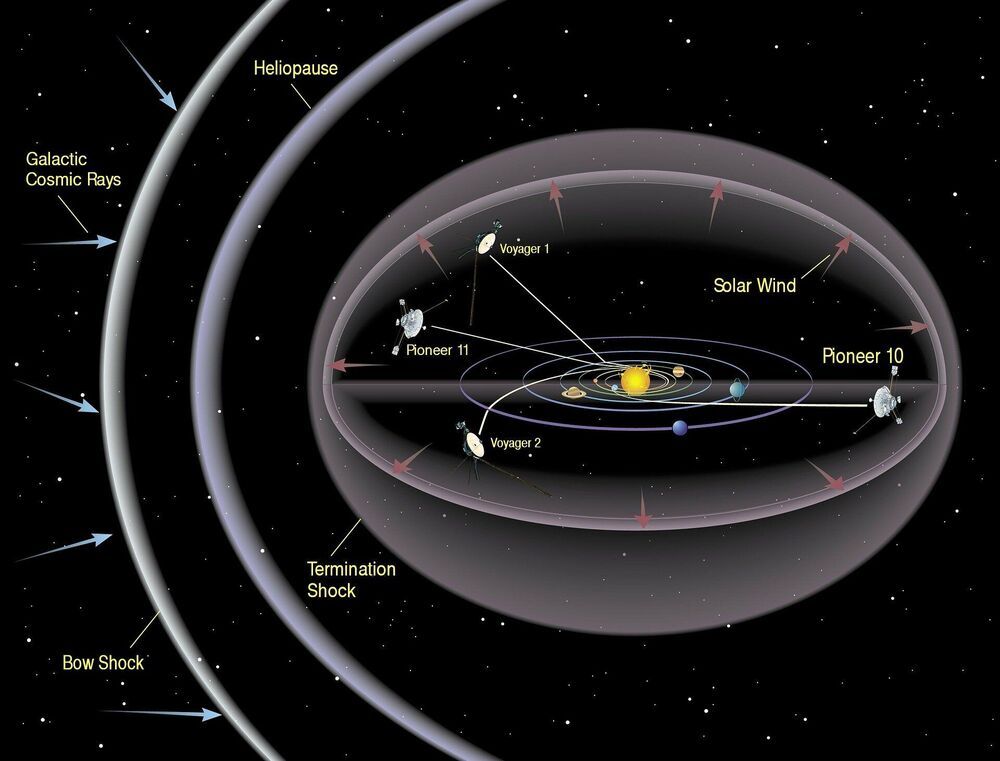Voyager 1—one of two sibling NASA spacecraft launched 44 years ago and now the most distant human-made object in space—still works and zooms toward infinity.
The craft has long since zipped past the edge of the solar system through the heliopause—the solar system’s border with interstellar space —into the interstellar medium. Now, its instruments have detected the constant drone of interstellar gas (plasma waves), according to Cornell University-led research published in Nature Astronomy.
Examining data slowly sent back from more than 14 billion miles away, Stella Koch Ocker, a Cornell doctoral student in astronomy, has uncovered the emission. “It’s very faint and monotone, because it is in a narrow frequency bandwidth,” Ocker said. “We’re detecting the faint, persistent hum of interstellar gas.”
